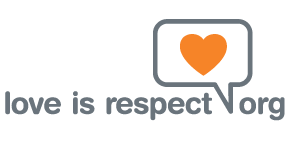What Role Can Youth and Teens play?
In times of need, we turn first to our friends and peers. As a young person, you’re in a position to truly know what is going on with your friends, siblings, and fellow students in a way that adults cannot - and that also puts you in a position to help in ways that adults cannot.
Youth and teens:
You can offer nonjudgmental support to your peers – as you know, a conversation with someone your own age is often the only place where there is nobody judging or telling a young person what to do.
You can also model caring and compassionate behavior for people your own age and younger. If you see someone in need, you don’t have to be a bystander - you can be an ally, a friend, a supporter.
What Can You Do?
Shape the world with your everyday actions.
Every choice you make in how you interact with those close to you – or those that are simply in your sphere – can help change the culture so that all youth feel supported and connected. Increased adolescent suicide rates, especially among LGBTQ youth, have been in the news lately, but peer-to-peer connection can combat depression and isolation.
The Trevor Project is one organization that offers crisis intervention services to lesbian, gay, bisexual, transgender, queer, and questioning youth. PreventionLane also explains how you can help someone - or call the National Suicide Prevention Hotline at 1-800-273-8255
Reach out when you feel isolated.
Organizations like Ophelia’s Place and Looking Glass provide counseling, skill-building workshops, and support groups.
Learn how to make a difference.
Follow your passion to get involved in causes you care about. Points of Light’s Generation On can help you affect change in your community.
Be part of the solution.
Visit the That’s Not Cool website to combat dating violence among your peers by finding out what you can do with tools like the Respect Effect app that challenges teens to take positive action and the Cool Not Cool quiz to see what you think of a range of relationship scenarios.
Don’t be a bystander.
Step in when you see someone being targeted or treated badly. If you feel unsafe to intervene yourself, make the effort to connect with a trusted adult - a parent, older sibling, teacher, or coach - and tell them what you saw and identify who may need help.
Don’t be afraid to speak up.
In this video, child prodigy Adora Svitak says the world needs "childish" thinking: bold ideas, wild creativity and especially optimism.
Become an official or unofficial mentor to a younger child.
Children look up to older youth and having someone like you in their corner can be a source of great support. Simply by having a basic relationship with a sibling, a friend’s sibling, a neighbor, or a younger classmate, you serve as someone a child can turn to.
Find a mentor for yourself.
Local organizations like Centro Latino Americano and A Family for Every Child offer mentoring programs - or ask your school for resources. Many Eugene District 4J schools can pair you with a mentor you’ll meet with at lunchtime.
Be a resource to your peers.
Know what’s available at your school or in your community so that you can offer suggestions to someone who needs support. Offer to go with a friend to talk to a trusted adult about problems, or recommend specific resources, like Looking Glass’s services for runaway and homeless youth.
Break isolation.
Take advantage of any opportunity to break the isolation of other youth who you think may be lonely. This can be as simple as saying hi in the hallway, talking on the bus, or asking about someone’s weekend.
Get inspired.
UNICEF’s Voices of Youth offers inspiring, original insight and opinion from across the globe – by young people, for young people.
Worried about a friend’s relationship - or your own?
Get help and advice by phone, chat, or text from Love Is Respect - or find out how you can help a friend in an abusive relationship.
Volunteer.
As volunteers, youth are highly prized and always in demand because of your unique roles and because of the energy and dedication you bring to the causes you care about.



